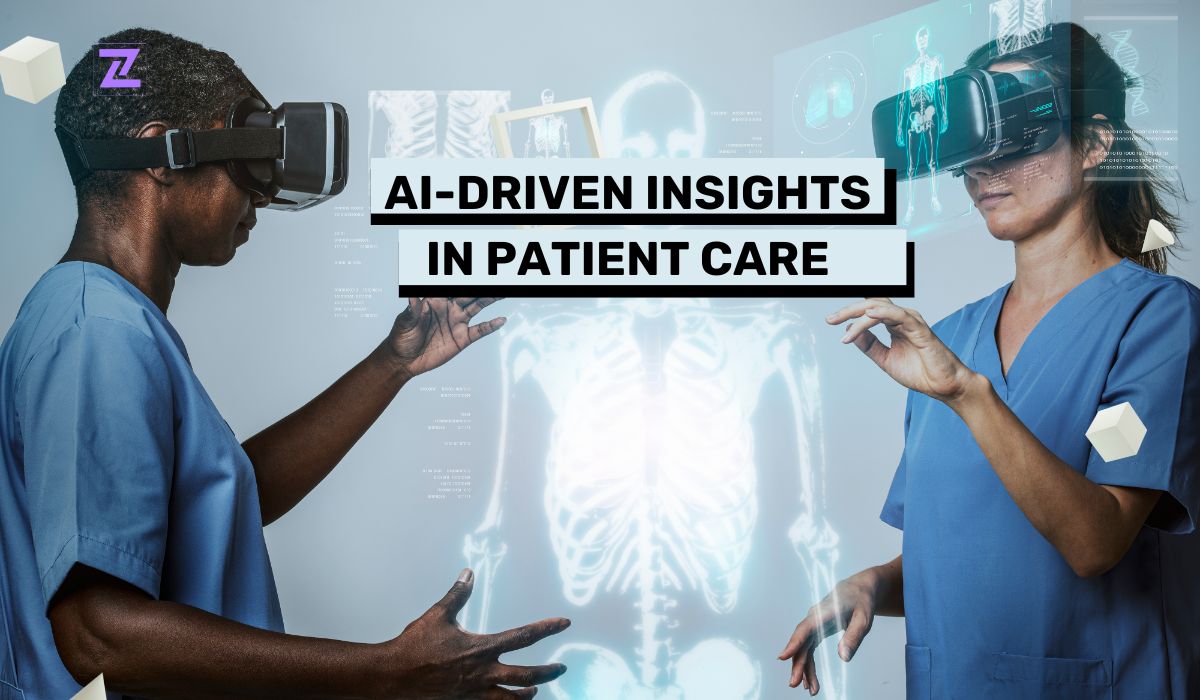
The integration of Artificial Intelligence (AI) into the healthcare landscape has ushered in a new era of possibilities, transforming the way we approach medical diagnostics, treatment plans, and patient care. As we stand at the intersection of technology and healthcare, it's crucial to explore the role that AI, particularly machine learning, should play in shaping the future of healthcare. Here we'll delve into the initiatives by United Healthcare, the application of machine learning in healthcare, how models learn about health, and the responsible utilization of AI-driven insights in patient care.
United Healthcare's Initiatives: A Vision for the Future
United Healthcare, as one of the leading players in the healthcare industry, has been actively exploring ways to harness the potential of AI to improve patient outcomes and enhance overall healthcare delivery. The company's initiatives span various domains, from predictive analytics for disease prevention to personalized treatment recommendations based on individual health data.United Healthcare's commitment to leveraging AI aligns with the broader industry trend of incorporating innovative technologies to address complex healthcare challenges. By embracing AI, the aim is to create a more efficient, data-driven, and patient-centric healthcare system.
Applying Machine Learning in Healthcare
Machine learning, a subset of AI, empowers healthcare professionals with the ability to analyze vast datasets, detect patterns, and make predictions that can inform clinical decisions. Here are key areas where machine learning is making a significant impact in healthcare:
► Disease Prediction and Prevention:
Machine learning algorithms analyze patient data to identify patterns that may indicate the risk of certain diseases. This enables healthcare providers to implement preventive measures and interventions, reducing the likelihood of disease progression.
► Diagnostic Imaging:
Machine learning is revolutionizing diagnostic imaging, such as medical imaging and pathology. Algorithms can enhance the accuracy of image interpretation, aiding radiologists and pathologists in making more precise and timely diagnoses.
► Personalized Treatment Plans:
By analyzing patient records and genetic information, machine learning models can recommend personalized treatment plans tailored to an individual's unique characteristics. This personalized approach enhances treatment efficacy and minimizes adverse effects.
► Operational Efficiency:
Machine learning applications streamline administrative tasks, such as scheduling, billing, and resource allocation. This optimization of operational processes allows healthcare providers to focus more on patient.
How Models Learn About Health
The efficacy of machine learning models in healthcare relies on their ability to learn and adapt from diverse datasets. Here's a glimpse into how these models acquire knowledge about health:
► Training Data:
Machine learning models are trained using extensive datasets that include a variety of health-related information. This can encompass electronic health records, medical imaging, genetic data, and patient outcomes.
► Feature Extraction:
During training, the model learns to identify relevant features or patterns within the data. For instance, in disease prediction, the model might recognize specific combinations of symptoms, genetic markers, or lifestyle factors associated with a particular condition.
► Algorithmic Learning:
The model uses algorithms to analyze the data and identify correlations, trends, and predictive patterns. This process involves adjusting parameters to optimize the model's ability to make accurate predictions.
► Validation and Iteration:
The trained model is then validated using separate datasets to ensure its generalizability. Continuous iteration and refinement are performed to enhance the model's performance based on feedback from real-world applications.
Using the Model's Results Responsibly
While the potential benefits of AI in healthcare are substantial, responsible and ethical use of AI-generated insights is paramount. Here are key considerations for using the results derived from machine learning models responsibly:
► Transparency:
Healthcare providers must be transparent about the use of AI in patient care. Clear communication with patients about how AI is employed, the data sources utilized, and the purpose of AI-driven insights fosters trust and informed decision-making.
► Interpretability:
Understanding how AI models arrive at specific conclusions is crucial for healthcare professionals. Models should be designed to provide interpretable results, allowing clinicians to comprehend the rationale behind recommendations and make informed decisions.
► Data Privacy:
Patient privacy is a top priority in healthcare. Ensuring that AI applications adhere to stringent data privacy standards is essential. Implementing robust security measures and anonymizing patient data are critical components of responsible AI use.
► Human Oversight:
While AI augments decision-making, human expertise remains indispensable. Healthcare professionals should exercise judgment, critically evaluate AI-generated insights, and retain the ability to override recommendations when necessary.
► Bias Mitigation:
AI models can inadvertently perpetuate biases present in training data. Rigorous efforts to identify and mitigate biases ensure that AI applications provide equitable and unbiased care across diverse patient populations.
The role of AI in healthcare is evolving rapidly, with transformative implications for patient outcomes, clinical workflows, and the overall healthcare ecosystem. As exemplified by United Healthcare's initiatives, the integration of AI, particularly machine learning, holds promise for more personalized, efficient, and effective healthcare delivery.Navigating the future of healthcare with AI requires a balanced approach that prioritizes transparency, interpretability, privacy, human oversight, and bias mitigation. By embracing responsible AI practices, healthcare providers can harness the full potential of these technologies to improve patient care, enhance diagnostics, and contribute to the evolution of a more advanced and compassionate healthcare system. The synergy between human expertise and AI-driven insights will shape a future where healthcare is not only more technologically advanced but also more patient-centric and inclusive.